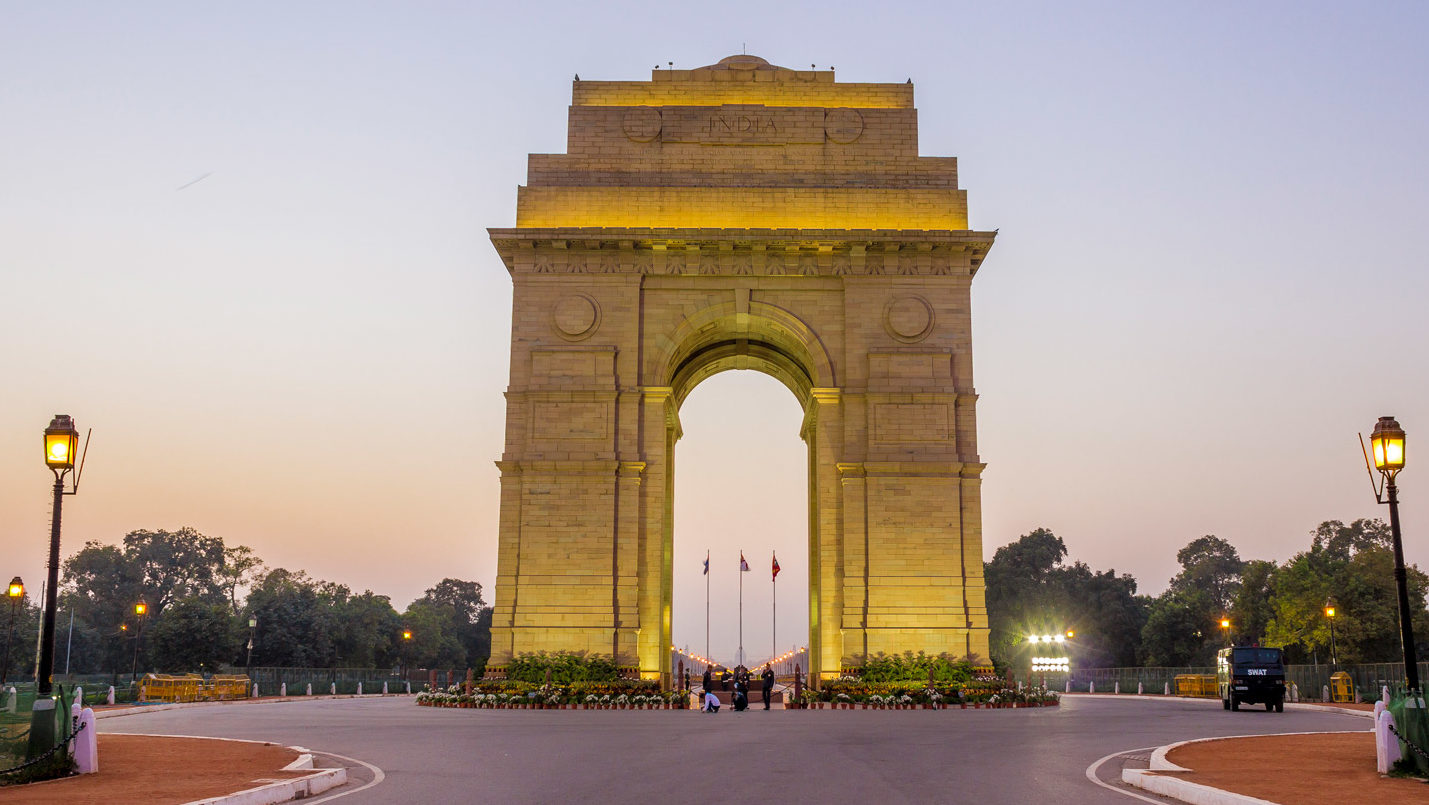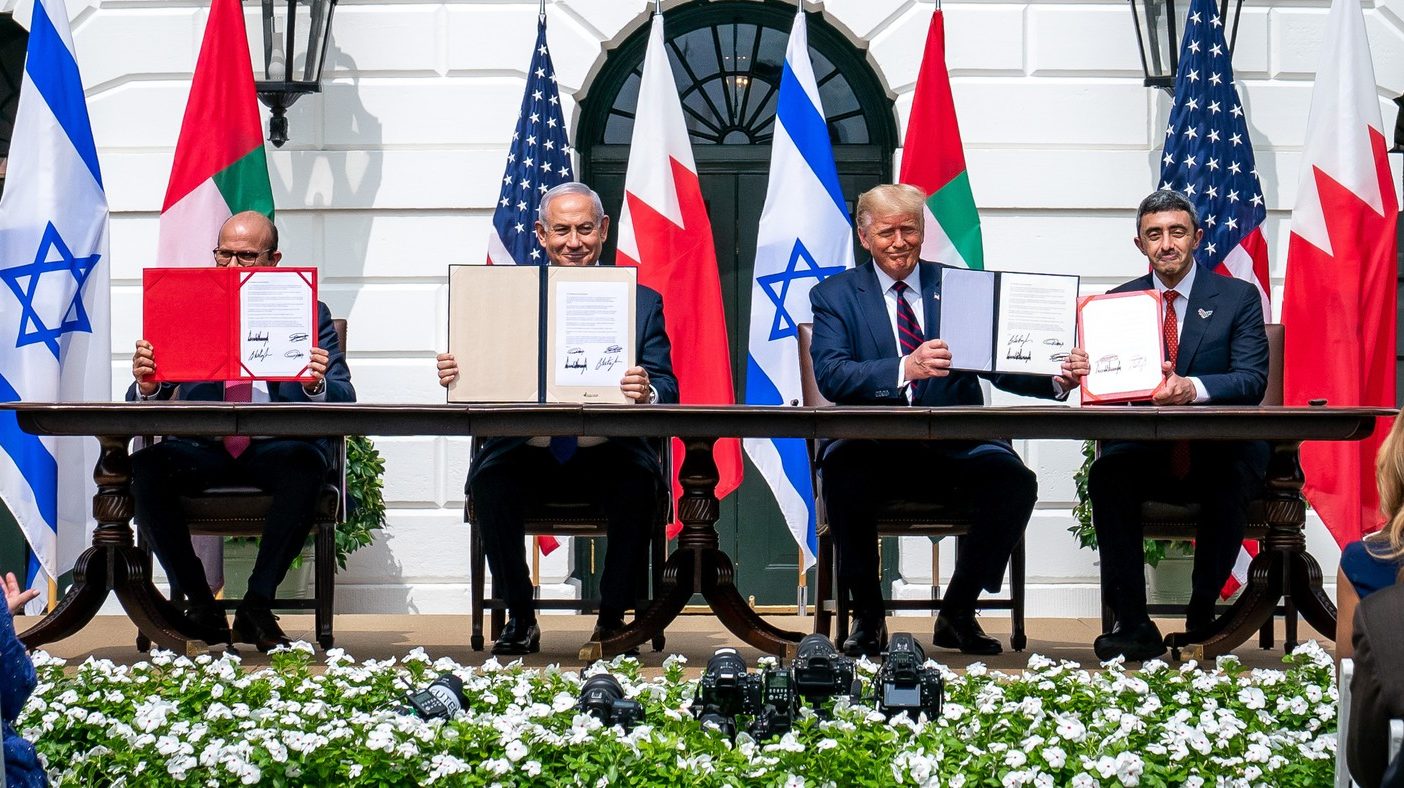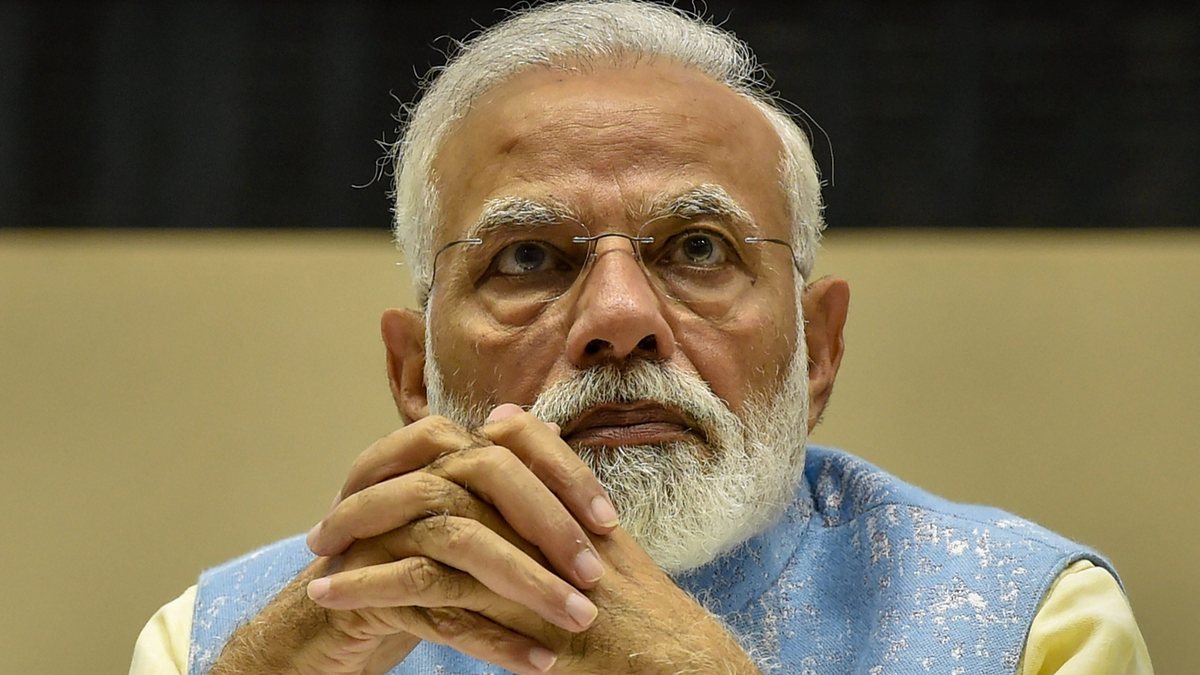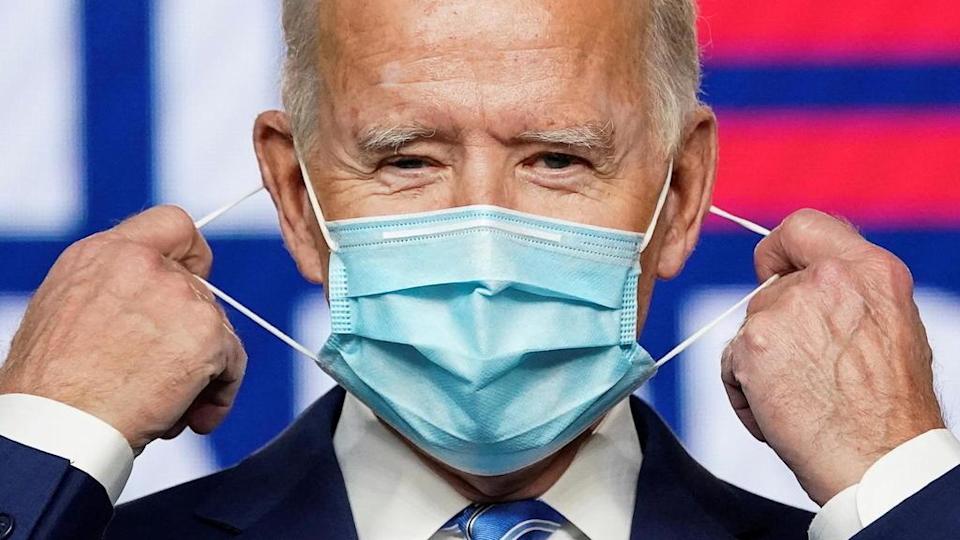The change of political leadership in the United States and the arrival of a Democratic candidate in the White House has turned over another chapter in American history. The victory of Democratic candidate Joe Biden in the 59th quadrennial presidential election is a defeat of Republican Donald Trump. Still, it contains substantial potential to bring change in American foreign engagements. The arrival of Biden as the 46th President will not only change domestic American policies but will bring a major change in US foreign policy. The world’s leaders have also accepted the end of the Trump era as a positive development that will alter the US’s Republican-designed global role. The changes in the United States’ foreign policy priorities enacted by Trump will define the American global standing because the Biden administration is expected to improve US’s global image. Trump’s hawkish ideology has been stigmatized as the American position in the world due to introducing a number of belligerent moves in the US’s mainstream foreign relations. In this way, the change of political administration in the US has inaugurated a new debate in intellectual circles of the international community due to the demise of the Republican agenda in American politics. The leading policymaking groups from different regions have also started looking toward the US because the foreign policy changes in America’s mainstream foreign relations with other nations will alter the world’s political landscape.
The debate on the US foreign engagements cannot be divorced from America’s South Asian policy where a decades-long hostility between two nuclear-armed states has become a significant challenge for Washington. US presence in the nuclearized subcontinent has become an inevitable reality and an undeniable truth due to its close bilateral ties with India and Pakistan. The ongoing designs of Washington’s bilateralism with Islamabad and New Delhi portrays an awful feature of South Asian politics. The format of American South Asian policy is mainly inherited in Trump’s policy of upholding India in the regional and extra-regional affairs. The two-sided leadership interaction was dramatically upgraded under Modi-Trump diplomacy which was designed to counter Sino-Pak friendship in South Asia’s regional affairs. In addition to critically treating Beijing-Islamabad ties, New Delhi and Washington under Modi and Trump’s governments decided to counter China’s role in the broader Asian continent. The quest for countering China and its increasing role in world politics has become a common goal for India and the US, which resulted in an Indo-US strategic partnership. The increasing diplomatic closeness under the rubric of broader strategic partnerships is linked to American geostrategic interests fostered under the Trump administration. Without considering the adverse impacts of an Indian-inclined South Asian policy, leading state officials under President Trump decided to provide multi-layered strategic support to New Delhi which has disturbed the scope of peace and stability in South Asia.
India’s inclined policies have badly fractured the American aim of ensuring peace and stability in the South Asian region because an unprecedented growth of strategic bilateral ties between New Delhi and Washington hampered the impartial and balanced role of the US in the nuclearized subcontinent. Both nations’ strategic partnership inflected a sense of insecurity in Pakistan’s mindset parallel to pushing Islamabad towards Beijing. Moreover, the signing of the Communication, Compatibility and Security Agreement (COMCASA) and providing a status of Strategic Trade Authorization-1 to India was designed to provide New Delhi access to highly sensitive and technologically advanced military devices. Both steps were considered foundational agreements between New Delhi and Washington’s cooperation under the Trump administration. Both sides finalized several joint ventures in different strategic domains without understanding their impacts on the broader South Asian region. Trump’s designed-changes in American foreign policy’s mainstream structure upset its South Asian directions because treating Islamabad and New Delhi separately started neglecting Indo-Pakistan hostility’s various hardcore realities. The objective of adopting a bellicose behavior against China’s peaceful rise in world politics has become an essential feature of international power politics while leaving adverse impact on India-Pakistan strategic competition. Furthermore, the American pursuit of promoting and upholding India in world politics has added New Delhi in its broader Asia Pacific strategy designs. In this way, a number of India-specific measures in Trump’s foreign policy, mainly in the fields of defense and maritime security, served to enhance the scope of bilateral strategic interaction between New Delhi and Washington. Reciprocal meetings and two-sided visits of both nations’ leading political authorities enhanced the vision for a close strategic nexus, questioning the American mission of establishing a stable, peaceful, and prosperous South Asia. Such bilateral interaction of both nations has damaged the American standing in the nuclearized subcontinent and dented Washington’s constructive role in Indo-Pak longstanding hostility.

No doubt, the increasing strategic ties between the two states is purely a matter of inter-state relations, but the emerging bilateralism between two states cannot be separated from its impacts on other countries or a third state. The multilateral bilateral engagements with Pakistan and India have become a permanent feature of US-South Asian policy. Washington’s New Delhi-inclined behavior is upsetting Islamabad’s standing in regional politics. US state officials have decided to treat Islamabad and New Delhi on an individual basis because their preoccupation with Indian values has dominated the American role in the regional South Asian order. Parallel to cultivating a close strategic partnership with New Delhi, Washington has inflicted a sense of insecurity in Islamabad’s mindset, which has compelled American leaders to evaluate Islamabad’s role in regional and global politics critically. The policy of treating both nuclear rivals on different standards has become a reality of Washington’s South Asia role. Such trends in foreign policy were adopted by the Bush administration and continued during Obama and Trump administrations. The Trump government did not only open various economic and strategic avenues for New Delhi but it finalized various security agreements and defense deals with India. In other words, the American favor to India has communicated Washington’s aim of upholding New Delhi in global affairs through supporting India in the global power politics. There are many initiatives such as the signing of the civil nuclear deal, granting India a proactive role in Afghanistan, supporting the Indian inclusion in the Nuclear Supplier Group, allowing New Delhi to purchase high-tech armed systems from different countries, and placing India close to major US allies have encouraged the Indian government under Modi to continue its belligerent role in its domestic region. So, the objective of strengthening bilateral strategic collaboration with New Delhi was not only an animated feature of Trump’s South Asian policy, but it damaged the impartial and stable foundations of American foreign policy. Further developments in the form of Modi-Trump diplomacy raised several questions on US global engagement generally and Washington’s role in the South Asian political affairs specifically. In this way, the departure of Donald Trump from the White House has left a challenging American foreign policy framework for the Biden administration.

The management of foreign affairs by adopting balancing standards for core allies has become a major challenge for the Biden administration. The aim of not disrupting the strategic balances of the different regions should be the actual concern of Joe Biden, which could let Washington sustain its actively effective presence in world politics. The quest for maintaining a stable balance of broader global politics will convince the Biden administration to strengthen Washington’s position in international power politics. Moreover, the objective of restoring America’s positive image which was tarnished by the Trump administration will become a gravitational point of the Biden regime. President Trump took revolutionary steps in American global engagement such as the withdrawal from Trans-Pacific Partnership, imposing a travel ban on specific Muslim communities, extending Washington’s role in the Syrian conflict, withdrawing from the landmark Paris Climate Agreement, and the termination of the nuclear deal with Iran. Moreover, under President Trump, the American officials caused substantial disturbance in foreign relations, mainly with Russia, China, North Korea, Iran, and Cuba. Trump’s move for revisiting its decades-long Middle Eastern policy overtly started supporting the state of Israel without taking into consideration its impacts on the historical Arab-Israel conflict. In addition to recognizing Jerusalem as the official capital of Israel, the Trump administration augmented the multidimensional strategic ties with India without realizing its impacts on the broader South Asian region, where Indian hegemonic designs have already disturbed the regional balance. Despite knowing the Indian aggressive regional policy cemented in its anti-neighborhood doctrine, the desire to counter China and the quest for strengthening deep American involvement in the nuclearized subcontinent led President Trump towards New Delhi. The US witnessed an unprecedented growth of bilateral ties with the Modi regime.

The continuation of cooperative ties with their Indian counterparts compelled the American leaders under Trump to consider New Delhi as a close strategic partner without observing its impacts on the historical Pak-US alliance. Now, the people living in the world’s capitals are looking towards the Biden administration because the change of ruling party in Washington has provided an opportunity to the US for improving and curing mainstream foreign policy generally, and its South Asian directions particularly. The South Asian nuclear order is demanding from Washington a balanced and impartial role of the US in the India-Pakistan conflict. The integration of neutral and unbiased policy structured on a balanced approach for the complicated South Asian security environment has become a major challenge for the Biden administration, which will enable the new American President to ensure the scope of peace and stability in the nuclearized subcontinent instead of solely emphasizing its geopolitical interests. Under Biden, the political authorities need to realize the undeniable ground realities of South Asian strategic competition between Islamabad and New Delhi for the restructuring of its long-term ties with Pakistan and India on an equal basis rather than maintaining its bilateralism on an unequal basis. The Biden government further needs to understand the reasons for not achieving its desired objectives in the South Asian policy in the presence of active diplomatic relations with Pakistan and India. The American South Asian role with a special focus on Islamabad-New Delhi interaction’s toxic features is needed to become a gravitational point of US role in the region. Therefore, a comprehensive review of Trump’s hawkish guidelines for dealing with both Islamabad and New Delhi in an unparalleled foreign policy framework has become an immediate need of Washington. In this way, the Biden administration needs to pay serious attention to a complex South Asian security environment. Treating Islamabad and New Delhi on separate bilateralism is the main issue that needs the American leader’s attention.




